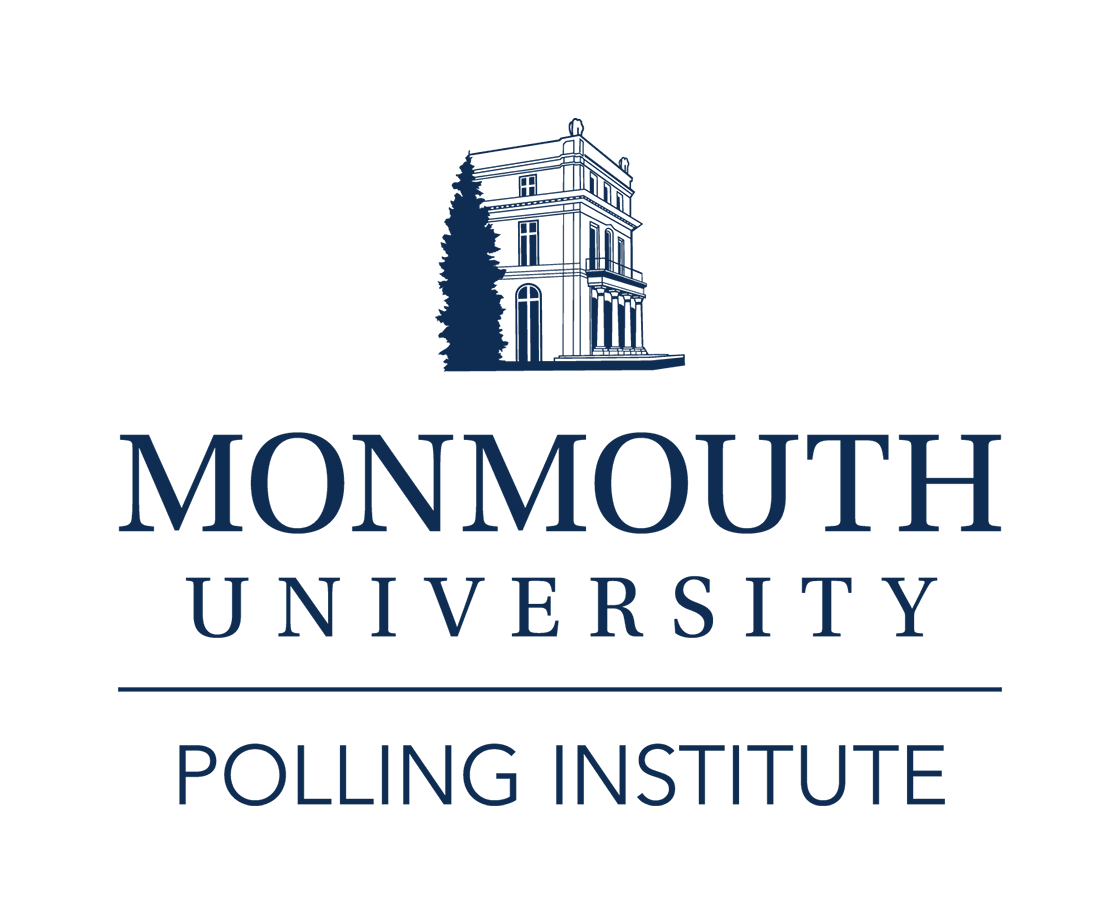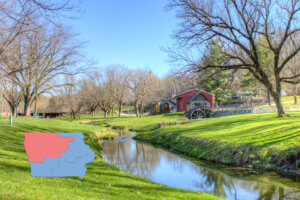West Long Branch, NJ – In a poll conducted largely before the announcement that he would not participate in the final debate prior to Iowa’s caucuses, Donald Trump leads Ted Cruz in the first contest of 2016. The latest Monmouth University Poll of likely Iowa Republican caucusgoers finds that turnout will be a significant factor in determining who emerges victorious.
Donald Trump earns 30% support and Ted Cruz has 23% support when likely caucusgoers are asked who they will caucus for on February 1 st . Marco Rubio (16%) and Ben Carson (10%) are in the field’s second tier. The remaining candidates earn less than 5% support each, including Jeb Bush (4%), Mike Huckabee (3%), John Kasich (3%), Rand Paul (3%), Chris Christie (2%), and Carly Fiorina (2%).
Cruz’s support has basically held steady since his 24% showing in December when he led the field, while Trump’s support has grown substantially from 19% last month. The current result is Trump’s best showing in any Monmouth Iowa caucus poll since he entered the race. Rubio is off by one point and Carson is down by 3 points since last month’s poll.
Cruz does particularly well among registered Republicans who have a history of voting in state primaries. He leads Trump by a 28% to 23% margin among this group of regular party voters, with Rubio at 14% and Carson at 13%. Trump does better among those who do not have a history of taking part in party elections. This includes 44% support among registered Republicans who are general election voters and 50% support among registered independents who say they will attend their local Republican caucus on Monday. Rubio comes in second among non-primary GOP voters at 20% with Cruz at 13%. Rubio also places second among independents who will caucus at 14% with Cruz at 10%.
Since Trump draws a disproportionate amount of support from voters who are not political diehards, he will need a strong turnout to emerge victorious on February 1 st . Based on past voting history and voters’ stated intentions to attend this year’s caucuses, the current poll estimates turnout will be approximately 170,000 voters, which would far surpass the 122,000 record GOP turnout from four years ago. Increasing the poll’s turnout projection to 200,000 voters widens Trump’s lead to 32% over 21% for Cruz, with Rubio at 16% and Carson at 9%. Decreasing the turnout projection to 130,000 voters, which would still be a record level, puts the race in a tie at 26% for Trump and 26% for Cruz, with Rubio at 15% and Carson at 12%.
“Turnout is basically what separates Trump and Cruz right now,” said Patrick Murray, director of the independent Monmouth University Polling Institute in West Long Branch, NJ. “Trump’s victory hinges on having a high number of self-motivated, lone wolf caucusgoers show up Monday night.”
Nearly half (45%) of likely caucusgoers report having been contacted by a campaign to obtain their support. This includes 25% who have been contacted by the Cruz campaign, 17% by Rubio, 12% by Carson, and 13% by Trump. Among those who have been contacted by a campaign, 28% say they are caucusing for Cruz and 25% support Trump. Among those who have not received a campaign contact, 35% will be caucusing for Trump and 19% for Cruz.
A majority (54%) of voters say they will be attending their local caucus with another person, while 42% will be going alone. Among those who will be caucusing with a friend or family member, 27% support Cruz and 27% support Trump. Among those who will be caucusing alone, Trump gets 33% support to 20% for Cruz.
Nearly half (48%) of likely caucusgoers say they are completely decided on who they will support, which is up significantly from 20% who said the same last month. Another 38% say they have a strong preference but are still willing to keep their mind open in the final days. Just 1-in-7 have only a slight preferences at this late date (7%) or say they are still really undecided (8%). Majorities of Trump (54%), Cruz (60%), and Carson (59%) supporters say their minds are completely made up while just 37% of Rubio voters say the same.
One thing Trump still has going for him is that 6-in-10 GOP voters in Iowa would be content to see him as their party’s nominee – including 29% who would be enthusiastic about this outcome and 31% who would be satisfied. Another 20% would be dissatisfied and just 19% say they would be upset. However, slightly more say the same about Cruz – 23% would be enthusiastic and 44% would be satisfied if Cruz was the nominee, with 21% dissatisfied and just 9% upset. Similarly, 18% would be enthusiastic and 49% satisfied if Rubio became the nominee, with 21% dissatisfied and 7% upset. On the other hand, only 4-in-10 would be enthusiastic (8%) or satisfied (35%) if Bush got the GOP nomination, with 34% dissatisfied and 20% upset.
The major candidates have all seen their personal ratings dip in the past month. Trump holds a favorable rating of 50% – down 4 points since December – and a 39% unfavorable rating. Cruz holds a favorable rating of 59% – down 8 points since December – and a 31% unfavorable rating. Rubio holds a favorable rating of 62% – down 8 points since December – and an unfavorable rating of just 22%. Bush holds a favorable rating of only 30% – down 8 points since December – and a 53% unfavorable rating.
Iowa governor Terry Branstad recently called on Iowa voters not to support Cruz because of the candidate’s stand on ethanol. Nearly 9-in-10 (88%) voters have heard about their governor’s statement, but the vast majority (67%) say it will have no bearing on their vote. The remainder are split, with 17% saying the governor’s statement makes them less likely to support Cruz and 15% saying it actually makes them more likely to support Cruz.
–Key demographics in caucus support–
Very conservative voters prefer Cruz (36%) over Trump (27%), followed by Rubio (15%) and Carson (10%). Somewhat conservative voters choose Trump (34%) over Cruz (16%), Rubio (14%), and Carson (11%). Moderate voters prefer Trump (29%) and Rubio (21%), followed by Bush (10%), with Cruz (7%) and Carson (7%) registering in the single digits.
Evangelical voters, who make up a majority of the Iowa GOP caucus electorate, back Cruz (32%) over Trump (25%). Trump currently has a 36% to 12% edge over Cruz among non-evangelical voters, with Rubio standing at 15% among this group. Cruz maintains an advantage among tea party supporters. He commands 41% support among this group compared to 27% for Trump. Trump leads Cruz by 33% to 11%, with Rubio clocking in at 19%, among voters who do not support the tea party movement.
Trump draws similar support among voters under age 50 (28%) and those age 50 and older (31%). Cruz has slightly stronger support among voters under 50 (28%) than those 50 and older (21%). Likewise, Trump draws fairly equally among men (32%) and women (28%), as does Cruz – 22% men and 24% women.
The Monmouth University Poll was conducted by telephone from January 23 to 26, 2016 with 500 Iowa voters likely to attend the Republican presidential caucuses in February 2016. This sample has a margin of error of ± 4.4 percent. The poll was conducted by the Monmouth University Polling Institute in West Long Branch, NJ.
DATA TABLES
The questions referred to in this release are as follows:
(* Some columns may not add to 100% due to rounding.)
1. Who would you support if the presidential caucus was being held today and the candidates for the Republican nomination were – [NAMES WERE ROTATED]
| Jan. 2016 | Dec. 2015 | Oct. 2015 | Aug. 2015 | July 2015 | |
| Donald Trump | 30% | 19% | 18% | 23% | 13% |
| Ted Cruz | 23% | 24% | 10% | 9% | 7% |
| Marco Rubio | 16% | 17% | 10% | 4% | 5% |
| Ben Carson | 10% | 13% | 32% | 23% | 8% |
| Jeb Bush | 4% | 6% | 8% | 5% | 7% |
| Rand Paul | 3% | 4% | 3% | 3% | 5% |
| John Kasich | 3% | 3% | 2% | 4% | 2% |
| Mike Huckabee | 3% | 2% | 2% | 2% | 6% |
| Chris Christie | 2% | 2% | 1% | 1% | 1% |
| Carly Fiorina | 2% | 3% | 5% | 10% | 3% |
| Rick Santorum | 1% | 1% | 1% | 2% | 3% |
| Jim Gilmore | 0% | 0% | 0% | 0% | 0% |
| (VOL) Other | 0% | 0% | 0% | 0% | 0% |
| Lindsey Graham |
n/a |
<1% | 0% | 0% | 0% |
| Bobby Jindal |
n/a |
n/a | 2% | 1% | 4% |
| George Pataki |
n/a | 0% | 0% |
<1% |
<1% |
| Rick Perry |
n/a |
n/a |
n/a | 1% | 3% |
| Scott Walker |
n/a |
n/a |
n/a | 7% | 22% |
| (VOL) “Uncommitted” | 0% | 1% | 1% |
n/a |
n/a |
| (VOL) Undecided | 3% | 4% | 5% | 5% | 11% |
| (n) | 500 | 425 | 400 | 405 | 452 |
2. And who would be your second choice?
| Jan. 2016 | Dec. 2015 | Oct. 2015 | Aug. 2015 | July 2015 | |
| Ted Cruz | 20% | 18% | 14% | 13% | 7% |
| Marco Rubio | 16% | 17% | 14% | 8% | 9% |
| Ben Carson | 11% | 10% | 19% | 12% | 6% |
| Donald Trump | 9% | 14% | 12% | 10% | 9% |
| Jeb Bush | 5% | 6% | 5% | 5% | 6% |
| Carly Fiorina | 5% | 6% | 8% | 8% | 3% |
| Chris Christie | 5% | 5% | 1% | 3% | 2% |
| Mike Huckabee | 5% | 4% | 2% | 5% | 5% |
| Rand Paul | 4% | 2% |
<1% | 3% | 4% |
| John Kasich | 2% | 2% | 1% | 2% | 1% |
| Rick Santorum | 1% | 1% | 1% | 1% | 3% |
| Jim Gilmore | 0% | 0% | 0% | 0% | <1% |
| (VOL) Other | 0% | 0% | 0% | 0% | 0% |
| Lindsey Graham |
n/a | 0% |
<1% |
<1% |
<1% |
| Bobby Jindal |
n/a |
n/a | 6% | 6% | 8% |
| George Pataki |
n/a | 0% | 0% | 0% |
<1% |
| Rick Perry |
n/a |
n/a |
n/a | 2% | 5% |
| Scott Walker |
n/a |
n/a |
n/a | 9% | 13% |
| (VOL) No one | 9% | 7% | 6% | 6% | 4% |
| (VOL) Undecided | 8% | 8% | 9% | 7% | 15% |
| (n) | 500 | 425 | 400 | 405 | 452 |
3. Which of the following best describes where your decision stands at this moment: I am completely decided on which candidate I will support, I have a strong preference right now but I am willing to consider other candidates, I have a slight preference among a group of candidates I like, or I am really undecided among a number of candidates?
| Jan. 2016 | Dec. 2015 | Oct. 2015 | Aug. 2015 | |
| Completely decided | 48% | 20% | 19% | 12% |
| Strong preference | 38% | 49% | 43% | 42% |
| Slight preference | 7% | 18% | 19% | 27% |
| Undecided | 8% | 13% | 18% | 20% |
4. I’m going to read you a few names of people who are running for president in 2016. Please tell me if your general impression of each is favorable or unfavorable, or if you don’t really have an opinion. [NAMES WERE ROTATED]
| Favorable | Unfavorable | No opinion | |
| Jeb Bush |
30% | 53% |
17% |
| –December 2015 |
38 | 45 |
16 |
| –October 2015 |
42 | 46 |
12 |
| –August 2015 |
32 | 51 |
17 |
| –July 2015 |
40 | 42 |
18 |
| Ted Cruz |
59% | 31% |
10% |
| –December 2015 |
67 | 19 |
13 |
| –October 2015 |
59 | 24 |
18 |
| –August 2015 |
58 | 21 |
21 |
| –July 2015 |
53 | 17 |
29 |
| Marco Rubio |
62% | 22% |
15% |
| –December 2015 |
70 | 16 |
15 |
| –October 2015 |
65 | 16 |
19 |
| –August 2015 |
64 | 13 |
23 |
| –July 2015 |
64 | 14 |
22 |
| Donald Trump |
50% | 39% |
11% |
| –December 2015 |
54 | 36 |
9 |
| –October 2015 |
53 | 38 |
9 |
| –August 2015 |
52 | 33 |
14 |
| –July 2015 |
47 | 35 |
18 |
[QUESTIONS 5 TO 8 WERE ROTATED]
5. How would you feel if Donald Trump became the Republican nominee – enthusiastic, satisfied, dissatisfied, or upset?
| Jan. 2016 | Dec. 2015 | |
| Enthusiastic | 29% | 17% |
| Satisfied | 31% | 44% |
| Dissatisfied | 20% | 20% |
| Upset | 19% | 17% |
| (VOL) Don’t know | 1% | 2% |
6. How would you feel if Ted Cruz became the Republican nominee – enthusiastic, satisfied, dissatisfied, or upset?
| Jan. 2016 | |
| Enthusiastic | 23% |
| Satisfied | 44% |
| Dissatisfied | 21% |
| Upset | 9% |
| (VOL) Don’t know | 2% |
7. How would you feel if Marco Rubio became the Republican nominee – enthusiastic, satisfied, dissatisfied, or upset?
| Jan. 2016 | |
| Enthusiastic | 18% |
| Satisfied | 49% |
| Dissatisfied | 21% |
| Upset | 7% |
| (VOL) Don’t know | 4% |
8. How would you feel if Jeb Bush became the Republican nominee – enthusiastic, satisfied, dissatisfied, or upset?
| Jan. 2016 | |
| Enthusiastic | 8% |
| Satisfied | 35% |
| Dissatisfied | 34% |
| Upset | 20% |
| (VOL) Don’t know | 3% |
9. Did anyone contact you personally to ask you to caucus for a particular candidate?
| Jan. 2016 | |
| Yes | 45% |
| No | 54% |
| (VOL) Don’t know | 0% |
10. If YES: For which candidate were you asked to caucus? [MULTIPLE RESPONSES ACCEPTED]
| Jan. 2016 | |
| Jeb Bush | 9% |
| Ben Carson | 12% |
| Chris Christie | 5% |
| Ted Cruz | 25% |
| Carly Fiorina | 8% |
| Jim Gilmore | 4% |
| Mike Huckabee | 7% |
| John Kasich | 4% |
| Rand Paul | 9% |
| Marco Rubio | 17% |
| Rick Santorum | 5% |
| Donald Trump | 13% |
| (VOL) Other | 1% |
| (VOL) Don’t know | 3% |
11. Do you plan to go to your local caucus with someone else or will you go on your own?
| Jan. 2016 | |
| With someone else | 54% |
| On own | 42% |
| (VOL) Don’t know | 3 |
12. Governor Branstad recently asked Iowans not to support Ted Cruz because of his position on ethanol. Have you heard about this or not?
| Jan. 2016 | |
| Yes | 88% |
| No | 12% |
| (VOL) Don’t know | 0% |
13. Does Branstad’s statement make you more likely or less likely to support Cruz, or does it have no impact on who you will caucus for?
| Jan. 2016 | |
| More likely | 15% |
| Less likely | 17% |
| No impact | 67% |
| (VOL) Don’t know | 1% |
The Monmouth University Poll was sponsored and conducted by the Monmouth University Polling Institute from January 23 to 26, 2015 with a statewide random sample of 500 Iowa voters drawn from a list of registered voters who voted in at least one of the last two state primary elections, voted in both the 2012 and 2014 general elections, or have registered to vote in the past year. Results in this report are based on voters who say they are likely to attend the Republican presidential caucuses in February 2016 (including voters already registered as Republicans and voters who say they will declare themselves as Republicans for the caucuses). This includes 348 contacted by a live interviewer on a landline telephone and 152 contacted by a live interviewer on a cell phone, in English. Monmouth is responsible for all aspects of the survey design, data weighting and analysis. Final sample is weighted for age and gender based on state registration list information on the pool of all voters who meet the initial selection criteria. Data collection support provided by Braun Research (field) and Aristotle (voter list). For results based on the total sample, one can say with 95% confidence that the error attributable to sampling has a maximum margin of plus or minus 4.4 percentage points (unadjusted for sample design). Sampling error can be larger for sub-groups (see table below). In addition to sampling error, one should bear in mind that question wording and practical difficulties in conducting surveys can introduce error or bias into the findings of opinion polls.
|
POLL DEMOGRAPHICS (weighted) | ||
| 54% Male | 10% 18-34 | 55% Evangelical Christian |
| 46% Female | 21% 35-49 | 45% Not evangelical |
| 38% 50-64 | ||
| 31% 65+ | ||
Click on pdf file link below for full methodology and results by key demographic groups.




